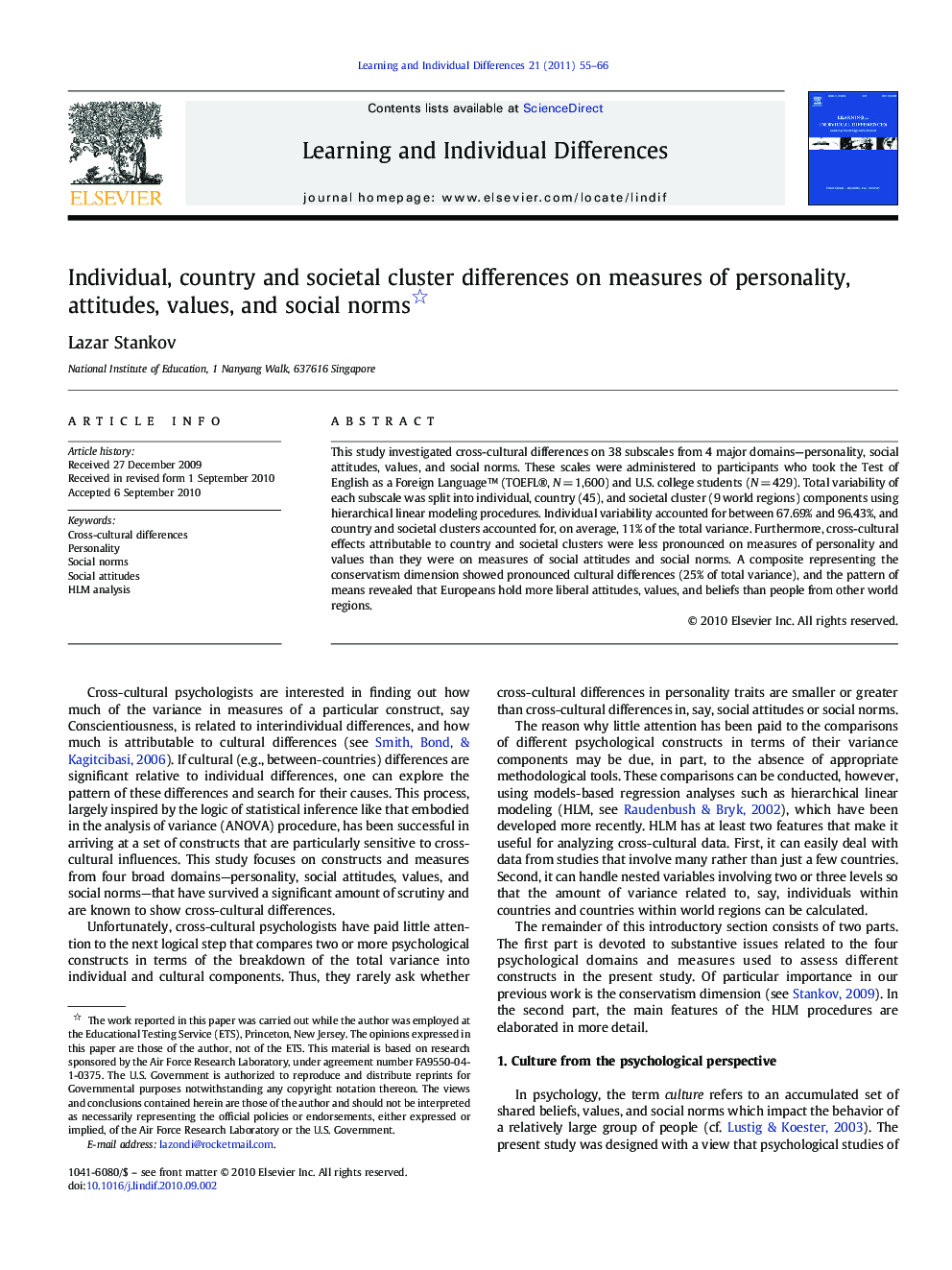| Article ID | Journal | Published Year | Pages | File Type |
|---|---|---|---|---|
| 365030 | Learning and Individual Differences | 2011 | 12 Pages |
This study investigated cross-cultural differences on 38 subscales from 4 major domains—personality, social attitudes, values, and social norms. These scales were administered to participants who took the Test of English as a Foreign Language™ (TOEFL®, N = 1,600) and U.S. college students (N = 429). Total variability of each subscale was split into individual, country (45), and societal cluster (9 world regions) components using hierarchical linear modeling procedures. Individual variability accounted for between 67.69% and 96.43%, and country and societal clusters accounted for, on average, 11% of the total variance. Furthermore, cross-cultural effects attributable to country and societal clusters were less pronounced on measures of personality and values than they were on measures of social attitudes and social norms. A composite representing the conservatism dimension showed pronounced cultural differences (25% of total variance), and the pattern of means revealed that Europeans hold more liberal attitudes, values, and beliefs than people from other world regions.
Research Highlights► Major part of variability in psychological traits resides within the individuals. ► Cross-cultural differences are small on measures of personality and values. ► Cross-cultural differences are large on measures of social norms and conservatism. ► Europeans hold more liberal attitudes, values, and beliefs than people from other regions.
